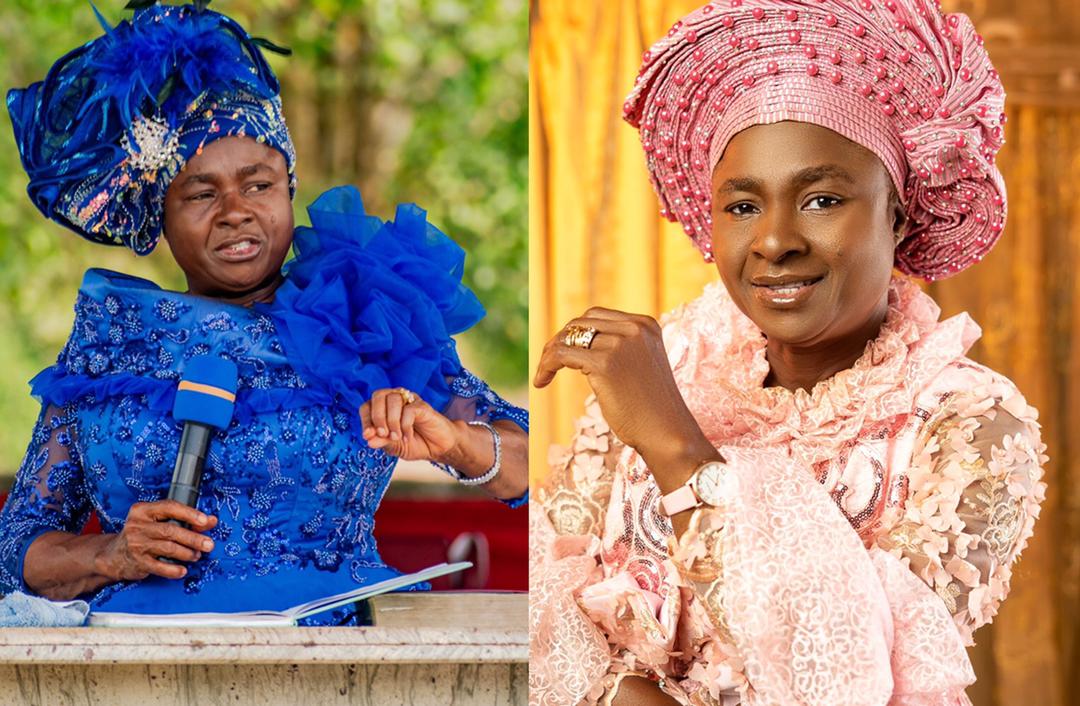
“‘Happy Birthday’ Is the Language of the Devil”: Clergywoman Helen Ukpabio Sparks Outrage Over Controversial Statement

In a statement that has ignited widespread debate across social media and religious circles, Nigerian clergywoman Helen Ukpabio has declared the phrase “Happy Birthday” to be “the language of the devil,” calling it a form of modern-day idolatry. Her comments, which surfaced during a sermon shared online, have stirred both fierce criticism and passionate defense from various corners of the public, marking another chapter in the ongoing tension between traditional religious beliefs and contemporary cultural practices.
Ukpabio, a Pentecostal preacher and founder of the Liberty Foundation Gospel Ministries, is no stranger to controversy. Known for her fiery sermons and strong opinions on spiritual warfare and demonic influence, her most recent message has once again drawn attention to the complex intersection of faith, culture, and societal norms. Speaking from the pulpit, the clergywoman asserted that no one has the right to claim ownership of a particular day of the year, insisting that every single day belongs to Jesus Christ alone. Celebrating birthdays, she argued, amounts to elevating oneself above the spiritual authority of Christ, which in her view is tantamount to idolatry.
“‘Happy birthday’ is the language of the devil,” Ukpabio declared. “It is modern day idolatry. Nobody has right to the day, everyday belongs to Jesus.” Her message was delivered with her signature intensity, and her tone left little room for interpretation. For Ukpabio and those who share her views, the act of celebrating one’s birth is not merely a harmless cultural tradition but a dangerous spiritual misstep that shifts glory away from God and toward the self.
The backlash was immediate and intense. Social media platforms lit up with reactions ranging from disbelief to outright condemnation. Many users accused the preacher of promoting extremism and alienating believers with unnecessarily rigid doctrines. Some pointed out the irony of someone who likely knows her own birth date rejecting a universal tradition meant to honor life, family, and personal milestones. Others expressed concern that such teachings could psychologically harm followers, especially children, who often find joy and affirmation in birthday celebrations.
One user wrote, “How is wishing someone happiness on the day they were born a sin? That’s not idolatry, that’s love.” Another added, “These are the kinds of messages that make Christianity seem harsh and out of touch. Jesus preached love, not condemnation for wishing someone well.”
Yet, not everyone disagreed with Ukpabio’s stance. A number of her followers and religious conservatives rallied to her defense, praising her courage to speak what they believe is spiritual truth, regardless of popular opinion. They argue that the modern culture has become increasingly self-centered and that birthday celebrations are part of a broader trend of elevating the individual above divine purpose. Some even referenced scripture, claiming that the Bible never instructs believers to observe birthdays and that such celebrations are often rooted in pagan traditions.
Among those defending the preacher’s comments was a group of religious commentators who emphasized the need for deeper spiritual discernment in a world driven by vanity and social media validation. “We are living in times where people are obsessed with self-glorification,” one commenter noted. “Every Instagram post, every birthday photoshoot, every lavish party is designed to put the spotlight on the individual. We’ve forgotten who deserves the true celebration—Jesus.”
The debate has also reignited long-standing theological questions about the nature of celebration, the role of cultural traditions within Christian practice, and the fine line between honoring someone’s life and worshiping the self. While many mainstream churches continue to embrace birthdays as moments for gratitude and fellowship, fringe movements and ultra-conservative ministries often see such practices as spiritually compromising.
Helen Ukpabio’s views, while not representative of the broader Christian community, nonetheless highlight the diversity—and at times, divisiveness—within global Christianity. In a religious landscape that includes both progressive and fundamentalist perspectives, her voice represents a rigid interpretation of scripture that prioritizes spiritual purity over social convention. Her followers argue that such radical stances are necessary in a world they see as increasingly morally bankrupt.
Still, critics warn that such absolutist positions risk alienating believers and distorting the core message of Christianity. “It’s one thing to call for spiritual reflection,” said a Lagos-based theologian. “It’s another to label a benign expression of joy as satanic. That kind of rhetoric does more harm than good, especially for young people trying to reconcile their faith with modern life.”
As the controversy continues to unfold, it raises broader questions about how religious leaders use their influence and what responsibilities they bear when speaking on matters that affect public sentiment. For Helen Ukpabio, the backlash may be familiar territory—but for many observing from the sidelines, the conversation has become a symbol of the growing gap between traditionalism and modern expression in contemporary faith.
Whether one agrees or disagrees with her perspective, one thing is clear: Helen Ukpabio has once again sparked a conversation that transcends the pulpit. Her declaration that “Happy Birthday” is the devil’s language has provoked not just outrage, but introspection. What does it mean to celebrate life in a spiritual context? Where do we draw the line between honoring God and appreciating ourselves? And in a world filled with both lighthearted traditions and deep spiritual convictions, can there be space for both?
As millions around the world continue to mark birthdays with cake, candles, and well-wishes, Ukpabio’s words serve as a stark reminder that even the most joyful customs are not immune to theological scrutiny. Whether her comments are seen as prophetic warning or doctrinal overreach, they have undoubtedly reignited the ongoing conversation about the role of faith in everyday rituals—reminding us once again that nothing, not even a birthday wish, is off the table in the battle over belief.


